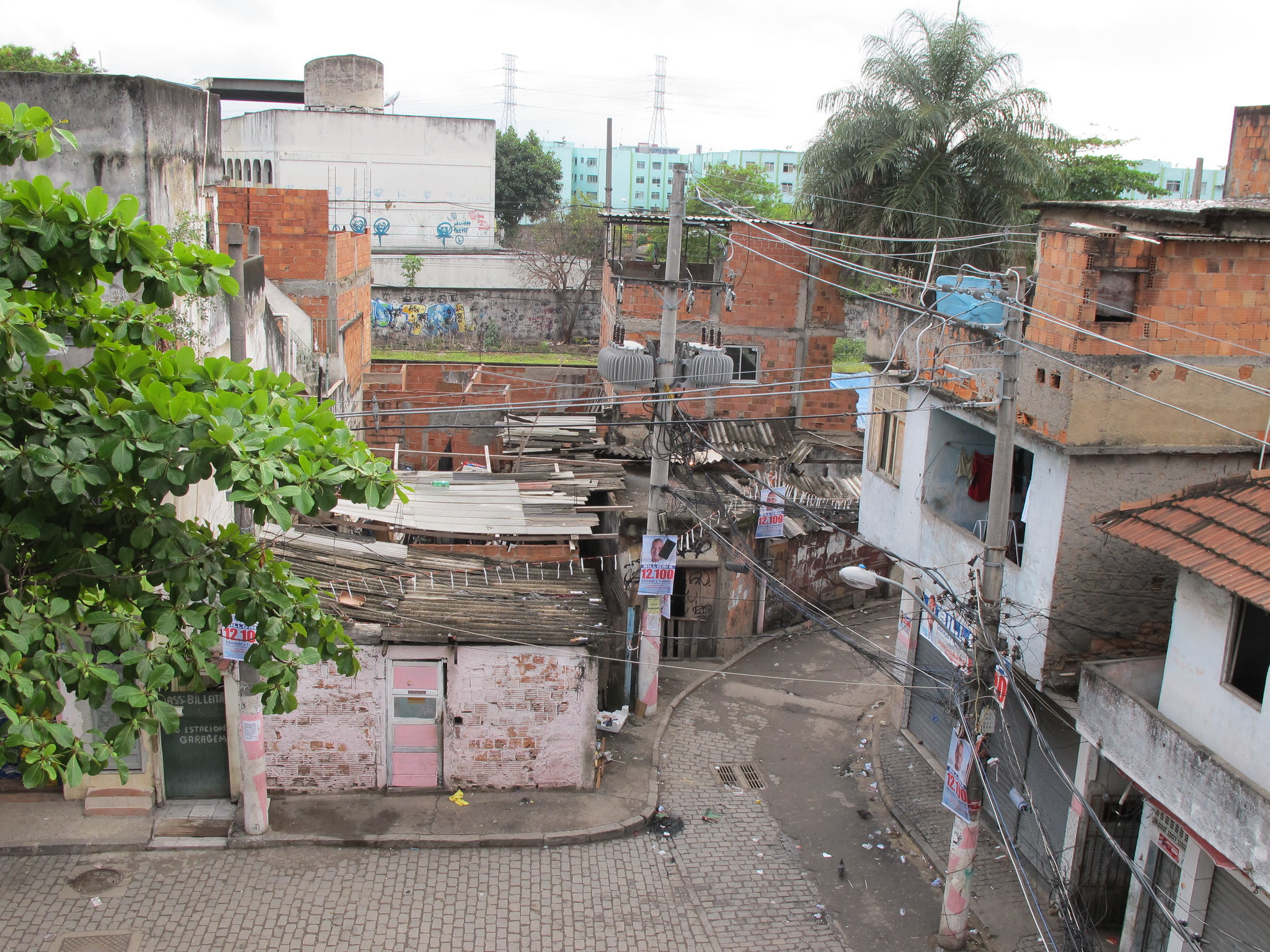Jacarezinho, the location of the May 6 deadly raid, is one of Rio de Janeiro’s largest favelas, with around 37,000 residents, and is known as an important stronghold for the Comando Vermelho drug faction. (Photo: riodepaznews.)
Bullets sprayed through Rio de Janeiro’s Jacarezinho favela on an early May morning as some 200 heavily-armed police forced their way into homes and through labyrinthine alleyways in a raid targeting the Red Command drug faction. At least 28 people were killed on May 6, making it the deadliest raid in the city’s history.
In the wake of the raid, Brazil’s Vice President Hamilton Mourão branded all those killed as “crooks”, while President Jair Bolsonaro praised officers responsible for the operation and repeated the allegation that only criminals were killed, pitting the victims in opposition to law-abiding citizens. But residents of Jacarezinho claimed many of the people killed had no involvement in the drug trade.
The incident is symptomatic of the combative relationship that Bolsonaro has fomented between police and residents of the country’s most deprived neighborhoods, according to Factal Editor Irene Villora.
“Every time there’s one of these massacres, it doesn’t even matter if someone raises their voice and [says], ‘but civilians have died here and this is disproportionate use of force and the police did not act according to protocols and this and that.’ The only thing he will say is, ‘the favelas are full of criminals and drug traffickers, I’m just keeping the city safe.’”
Bolsonaro rose to power in 2018 with a pro-police, anti-gang agenda in which he promised to stamp out criminality in favelas and decorate officers responsible for taking the lives of armed offenders.
“A lot of his campaign was based on fear mongering about delinquency and drug trafficking and insecurity in Brazilian cities and in the favelas,” Villora said.
A former federal deputy in Rio de Janeiro, he and his gubernatorial appointee Cláudio Castro presided over a significant spike in police violence in the city. Almost 800 people died at the hands of officers in Rio between June 2020 and March 2021, despite a Supreme Court ruling in June 2020 which prohibited raids in favelas on humanitarian grounds.
For the residents of Jacarezinho, challenging Bolsonaro’s hardline narrative on favelas is an uphill battle, given it is reinforced by global negative perceptions of the deprived areas. What’s more, seeking to raise awareness of the residents’ innocence could prove dangerous, as it could draw attention to drug gangs.
“It’s very hard to change that image of the favelas outside, because it is true that there’s a lot of common delinquency in Brazil, there’s a lot of criminality,” said Villora. “But it’s mainly because the situation in Brazil is really precarious for people and it has been for decades.”
Following the raid, Amnesty International said even if those who died were suspected of criminal association, “summary executions” of this kind are unjustifiable. The UN too called for an independent investigation.
Understanding the true story of the incident is further complicated by the police’s five-year secrecy decree on all documents relating to the incident. Such opacity is common practice and prevents media organizations from accurate coverage of stories of this nature, according to Villora.
“When you have this severe alteration of reality that’s coming from authorities, it’s very hard to do fair reporting,” she said. “The factor of security plays in as well — we must remember that the Latin America journalists get killed on a daily basis … there’s a lot of hidden interests in the power structures of the continent.”
The polarized nature of the two narratives — from authorities and residents of the favelas — serve only to exacerbate tensions. Thanks to his lofty position of power, Bolsonaro’s version is currently winning out, but cracks are beginning to show, with Brazilians angered by his handling of the coronavirus pandemic and related economic crisis. A decline in his popularity will likely provide a platform for more conciliatory voices — something that could lead to less frequent deadly raids in Brazil’s favelas.

(Photo: Presidential Palace.)
Further reading:
- Brazil is not the only Latin American nation where police are often accused of disproportionate use of force. Anti-corruption protesters in Colombia, Chile and Paraguay have often faced violence from responding officers, as Factal Editor Irene Villora explained in this previous edition of the Debrief.
- In this episode of the Guardian’s Today in Focus podcast, the newspaper’s Latin America correspondent discusses his experience meeting residents of Jacarezinho the day after the deadly raid.
- Many have compared Brazil’s Bolsonaro to the Filipino President Duterte, who has also been accused of extrajudicial killings during drug raids.

